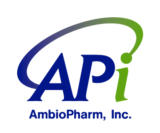When developing your peptide, you will need to select a salt form which is acceptable for your future clinical studies in humans and peptide testing.
The most common choice is to use acetate as your counterion. Acetate salts are usually preferred over HCl salts in most cases.
However, certain residues may influence which counterion is better for the stability of your product. In many cases, peptides with free sulfhydryl groups are more stable to potential oxidation impurities as HCl salts.
Acetate salts are usually preferred as they result in a better lyophilizate cake. In early research and development, many peptides are used as the trifluoroacetate salt.
As your project progresses, you will need to make a change to a salt form which is acceptable for clinical products.
To make it easier for you, you might consider starting out with an acetate to avoid this switch.
Interested in learning more about peptide development? Contact Us.

 中文
中文